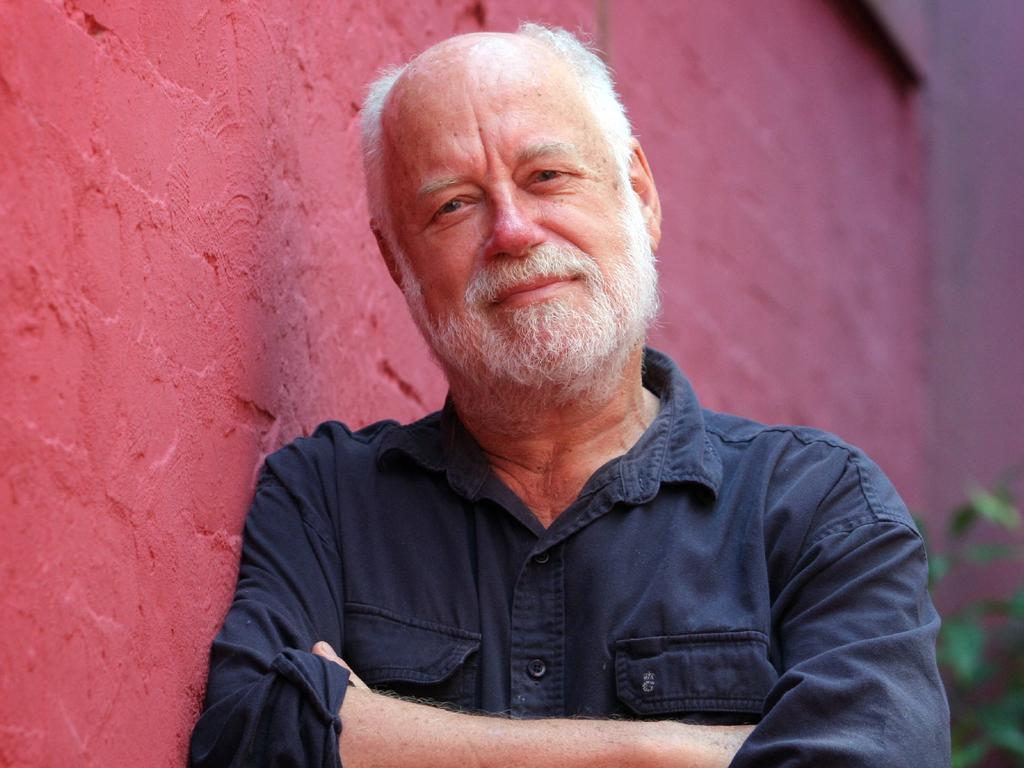
I may be the only conservative in captivity who will really miss the ABC’s Q+A program.
According to lists available online, I appeared on it 21 times, equal sixth with Penny Wong, behind Tanya Plibersek, Christopher Pyne, Malcolm Turnbull, Barnaby Joyce and Bill Shorten.
To tell you the truth, I loved it.
It seems eccentric for the ABC to abolish it now, when new host Patricia Karvelas, a talented broadcaster, was gathering a bigger audience. But its glory days undoubtedly came under Tony Jones.
Conservatives were generally in a minority on the panel, and the inner-city studio audience was generally hostile, but in a way that made it even more fun. And while there were some occasions when I felt like I was prevented from uttering some killer line or other, overall I always felt I got a good chance to defend whatever positions I was putting.
Real rancour was pretty rare. Camaraderie was more often in the air.
Once Malcolm Turnbull and I were having a fairly frivolous text exchange a few days before going on the program. He suggested we have a bet over who could mention first an obscure concept from theology. His nomination was the Apollinarian heresy – the idea that Jesus didn’t have a human mind.

I thought that just a bit too obscure so we settled on the medieval theologian Duns Scotus. At some point on the program, I duly observed that the government explained economic policy with the complexity of Duns Scotus expounding the immaculate conception. Turnbull roared with laughter, the rest of the panel nodded sagely and the next day, in fulfilment of our bet, Turnbull sent me a bottle of champagne.
But Q+A did also sometimes furnish the opportunity to discuss serious issues before a big national audience.
Tony Abbott was subjected to bizarre attacks based on complete mischaracterisations of his character before he went in to politics. Because Tony and I were friends as undergraduates at Sydney University several millennia ago, I had the chance to defend his character by telling the truth.
Good on the ABC for giving me that chance. The only genuinely unpleasant experience was sitting next to the odious John Pilger for a whole episode. I’m sure the producers didn’t think we’d get along. They weren’t disappointed.
We were discussing the protest movement in Egypt and Pilger kept saying something like “Let the Egyptians speak!”
Yet Pilger was not inclined to let anyone speak uninterrupted. There was one Egyptian Australian on the panel, the distinguished scholar Lydia Khalil. Pilger kept talking over her. He apparently wanted Egyptians to speak so long as they didn’t speak in front of him, and agreed with him completely, pretty much the progressive’s idea of free speech.
There were some odd experiences. I was part of a Q+A show held in conjunction with the Festival of Dangerous Ideas. The panel was discussing polyamory, specifically the idea of women having multiple husbands. In those days, Q+A would flash reader reactions on the screen. One wag wrote: Would someone tell Greg Sheridan he’s wandered into the wrong classroom.

The Green Room was a terrific place for gossip and informal conversation, plus not bad snacks and coffee, with folks you might not routinely run into. A couple of times I found myself in the make-up chair next to Tanya Plibersek, the very soul of charm and good cheer in private conversation. The always friendly and helpful make-up artists had a much greater challenge making me, with my natural face for radio, presentable for TV.
Sometimes we got into meaty issues. I appeared with the atheist philosopher Peter Singer and was able to quote to him passages he’d written arguing that sentient mammals such as dogs and cats or chimpanzees exhibit greater utility than profoundly handicapped babies, so the babies should not be kept alive.
“What are you saying, Greg, that they should be kept alive just because they are members of our species?” Yes, that’s exactly what I was saying: human beings, just because they’re human beings, have certain fundamental rights, among them the right to life.
Which led to another discussion that same night. The Greens’ senator Jordon Steele-John was on the panel and I asked if there was a concern that handicapped babies, as well as a disproportionately high number of females, were terminated before birth.

The host that night, Fran Kelly, cut that discussion off immediately, ruling it not a fit subject for the ABC to talk about. Yet in the Green Room afterwards I had a really fascinating discussion with a thoughtful Steele-John. He told me he admired Singer but wasn’t happy about all his views, and questioned especially the real value put on handicapped life.
That would have been a good discussion to have on air, and I think Tony Jones would have allowed it.
Several times I got to argue the historical case for Israel. Sometimes I was a bit harassed by other guests ganging up, or a hostile audience, but it was all pretty mild, and if you are ever mistreated on TV, the audience at home can see that clearly.
Overall, though, I had no complaints. I’m grateful for the opportunities to argue the toss about serious issues at, by television standards, some length.
Stan Grant was a very good host but I didn’t appear with him often. I think it’s not overstating things to say I became friends with Jones, who was good fun and a source of helpful advice on technical matters of presentation.
I will miss the Q+A Green Room and the challenge of an audience that doesn’t necessarily like you much but is willing to hear what you’ve got to say. The little frisson of tension as things get going, the challenge of staying in the moment but not ever getting uptight on air, and all the unexpected fun of the Green Room.
And it’s still the only broadcast I’ve ever done on Duns Scotus.






